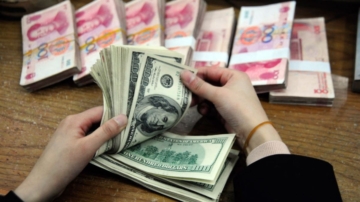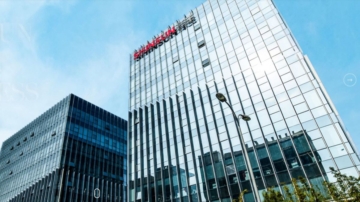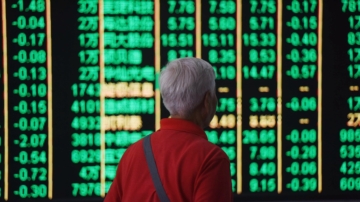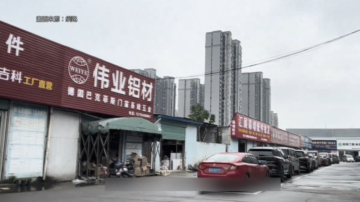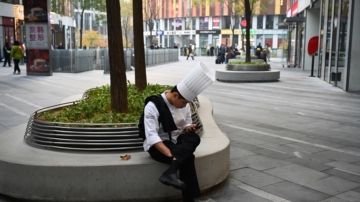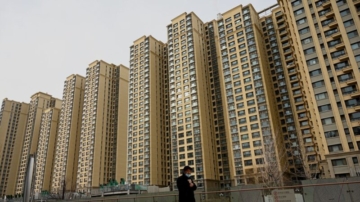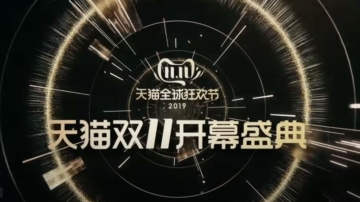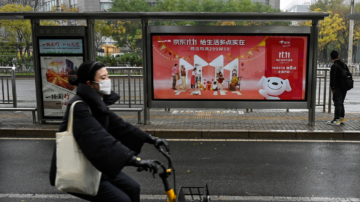【新唐人2012年9月6日讯】近30年来,中共在国内采取了保持经济增长速度,促进国内生产总值(GDP)总量增长的政策,但同时积累了巨大的负面影响。例如环境破坏,资源短缺,职业道德缺乏,腐败蔓延,贫富差距悬殊,社会矛盾尖锐等等。中国经济学界泰斗吴敬琏近期分析,要解决这些问题,当务之急是重启改革议程,推进经济改革和政治改革。
中国《财经》杂志第331期封面文章,刊登了对中国经济学界泰斗吴敬琏的专访。探讨中国经济发展带来的问题,以及今后中国何去何从。
吴敬琏指出,中国经济社会矛盾几乎到了临界点,国内资源日益短缺,环境破坏严重,腐败四处蔓延,贫富差别悬殊,社会矛盾激化。中国经济能不能平稳增长,社会能不能和平转型,都已成为重大的现实问题。
吴敬琏表示,当前社会上存在的种种丑恶现象,从根本上说是缘于经济改革没有完全到位、政治改革严重滞后、行政权力变本加厉的压制和干预民间正当经济活动,造成广泛寻租活动的结果。他认为,当务之急是重启改革议程,推进市场化的经济改革和法治化、民主化的政治改革。
吴敬琏的分析直指“政改”,不同于体制内很多人士将经济体制改革和政治体制改革分开而论的想法。这篇文章被广泛转载,有网友评论说,这篇文章内容超越经济范畴,是对整个中国现状,包括政治现状的透视和提出解决方案。也有学者表示赞同,说:经济改革涉及的是权力和利益的重新分配,实际上也就是政治改革。
吴敬琏还指出,两条前途严峻的路摆在中国前面。一条是沿着完善“市场经济”的改革道路前行,限制行政权力,走向“法治的市场经济”;另一条是沿着强化政府作用的“国家资本主义”的道路前行,走向“权贵资本主义”的穷途。
北京师范大学MBA导师段绍译表示,“权贵经济”是以牺牲老百姓的利益作为代价的,会使中国经济的发展走向衰落。但“权贵资本主义”现在在中国已经有很明显的现象。
北京师范大学MBA导师段绍译:“比方说第一是,最赚钱的行业都是国有企业垄断。而且垄断企业的领导人哪,要么就是政府高官的子弟,他们的亲戚,要不就是会拍马屁的人。”
北京律师肖国珍也认为,如果不走“法制经济”,中国将会非常危险。
北京律师肖国珍:“其实法制经济它是唯一的出路。否则的话,市场必然走向一个瓶颈,一个死胡同,必然是不可持续发展,甚至是会发生可怕的崩溃。各个领域,法治的状况都有很大的改善空间和潜力。”
这是最近三年,《财经》杂志第三次刊发经济学家呼吁“重启改革议程”的文章。编者按说,呼吁之声不绝于耳,表明改革遇到阻力,前行乏力。而多名学者向海外媒体表示,中国改革最大的障碍,就是“权贵资本”。
采访/白梅 编辑/尚燕 后制/葛雷
Reforms: China's Top Priority
As China's GDP rocketed the last 30 years,
the Chinese Communist Party's economic policy accrued negative effects on society.
Environmental damage, fall of business ethics, widespread
corruption, huge rich-poor gap and social conflicts, are some.
Wu Jinglian, China's leading authority on economics,
recently proposed a solution to these issues.
Wu said, the current top priority for the authorities
is to carry out economic and political reforms.
The cover article of China's Caijing magazine, Issue 331,
talked about an exclusive interview with Wu Jinglian.
Wu is known as a leading authority
on China's economy.
The interview discussed issues created in China
by its economic growth as well as China's future path.
Wu Jinglian said conflicts in China's economy and society
have been close to critical point.
Clashes intensify with the growing shortage of domestic
resources, environmental destruction, corruption and the widening rich-poor gap.
Can China's economy have a stable growth?
Will China see a smooth social transition?
Both questions, Wu Jinlian believes,
are major issues that China has to face.
Wu Jinglian analyzed the root causes behind evils
that are currently running rampant in China.
It is caused by failed implementation of economic reforms,
lagging political reform, intensified repression of administrative power and officials'market intervention.
Wu Jinlian said, China's top priority now
is to restart reforms in economy and politics.
Wu Jinlian's analysis directly targets "political reform."
The view is different from other Chinese economists'
separation of economic reform from political reform.
The interview has been widely reproduced on the internet.
Netizens commented that the article offers an insight and
a solution to China's status quo in economy and politics.
Some scholars applauded it, saying economic reform
is political reform, as it involves power and interest redistribution.
Wu Jinlian pointed out two rigorous paths
lying in front of China.
One is to head for "market economy under the rule of law"
by implementing economic reform and checking administrative power.
The other is to develop "state capitalism".
This would require strengthening the government's role
to realize the dead-end "crony capitalism."
Duan Shaoyi, an MBA mentor at Beijing Normal University,
comments on the "crony capitalism."
Duan says it exists at the expense of Chinese civilians'
interests and will lead to China's economic decline.
However, China has obviously exhibited "crony capitalism"
in reality, according to Duan.
Duan Shaoyi: "For example, China's most profitable sectors
have all been monopolized by state-owned enterprises(SOE).
And all the SOE leaders are either offspring or relatives
of high-ranking government officials, or those flatterers."
Beijing-based lawyer Xiao Guozhen says, China will be
very dangerous if failing to realize the rule of law in economy.
Xiao Guozhen: "The economy under the rule of law is
the only way out for China. I don't see other options.
If the economy lacks rule of law, it cannot be sustainable,
and could even see a terrible crash.
All sectors in China have great potentials
in light of improving rule of law."
This is Caijing's third article about economists' appeal
to reinitiate reforms in the last three years.
The editor's note said, the incessant appeals indicate
that reforms have been subject to resistance.
Overseas media reported that a number of scholars viewed
"crony capitalism" as the biggest obstacle for China's reform.
中国《财经》杂志第331期封面文章,刊登了对中国经济学界泰斗吴敬琏的专访。探讨中国经济发展带来的问题,以及今后中国何去何从。
吴敬琏指出,中国经济社会矛盾几乎到了临界点,国内资源日益短缺,环境破坏严重,腐败四处蔓延,贫富差别悬殊,社会矛盾激化。中国经济能不能平稳增长,社会能不能和平转型,都已成为重大的现实问题。
吴敬琏表示,当前社会上存在的种种丑恶现象,从根本上说是缘于经济改革没有完全到位、政治改革严重滞后、行政权力变本加厉的压制和干预民间正当经济活动,造成广泛寻租活动的结果。他认为,当务之急是重启改革议程,推进市场化的经济改革和法治化、民主化的政治改革。
吴敬琏的分析直指“政改”,不同于体制内很多人士将经济体制改革和政治体制改革分开而论的想法。这篇文章被广泛转载,有网友评论说,这篇文章内容超越经济范畴,是对整个中国现状,包括政治现状的透视和提出解决方案。也有学者表示赞同,说:经济改革涉及的是权力和利益的重新分配,实际上也就是政治改革。
吴敬琏还指出,两条前途严峻的路摆在中国前面。一条是沿着完善“市场经济”的改革道路前行,限制行政权力,走向“法治的市场经济”;另一条是沿着强化政府作用的“国家资本主义”的道路前行,走向“权贵资本主义”的穷途。
北京师范大学MBA导师段绍译表示,“权贵经济”是以牺牲老百姓的利益作为代价的,会使中国经济的发展走向衰落。但“权贵资本主义”现在在中国已经有很明显的现象。
北京师范大学MBA导师段绍译:“比方说第一是,最赚钱的行业都是国有企业垄断。而且垄断企业的领导人哪,要么就是政府高官的子弟,他们的亲戚,要不就是会拍马屁的人。”
北京律师肖国珍也认为,如果不走“法制经济”,中国将会非常危险。
北京律师肖国珍:“其实法制经济它是唯一的出路。否则的话,市场必然走向一个瓶颈,一个死胡同,必然是不可持续发展,甚至是会发生可怕的崩溃。各个领域,法治的状况都有很大的改善空间和潜力。”
这是最近三年,《财经》杂志第三次刊发经济学家呼吁“重启改革议程”的文章。编者按说,呼吁之声不绝于耳,表明改革遇到阻力,前行乏力。而多名学者向海外媒体表示,中国改革最大的障碍,就是“权贵资本”。
采访/白梅 编辑/尚燕 后制/葛雷
Reforms: China's Top Priority
As China's GDP rocketed the last 30 years,
the Chinese Communist Party's economic policy accrued negative effects on society.
Environmental damage, fall of business ethics, widespread
corruption, huge rich-poor gap and social conflicts, are some.
Wu Jinglian, China's leading authority on economics,
recently proposed a solution to these issues.
Wu said, the current top priority for the authorities
is to carry out economic and political reforms.
The cover article of China's Caijing magazine, Issue 331,
talked about an exclusive interview with Wu Jinglian.
Wu is known as a leading authority
on China's economy.
The interview discussed issues created in China
by its economic growth as well as China's future path.
Wu Jinglian said conflicts in China's economy and society
have been close to critical point.
Clashes intensify with the growing shortage of domestic
resources, environmental destruction, corruption and the widening rich-poor gap.
Can China's economy have a stable growth?
Will China see a smooth social transition?
Both questions, Wu Jinlian believes,
are major issues that China has to face.
Wu Jinglian analyzed the root causes behind evils
that are currently running rampant in China.
It is caused by failed implementation of economic reforms,
lagging political reform, intensified repression of administrative power and officials'market intervention.
Wu Jinlian said, China's top priority now
is to restart reforms in economy and politics.
Wu Jinlian's analysis directly targets "political reform."
The view is different from other Chinese economists'
separation of economic reform from political reform.
The interview has been widely reproduced on the internet.
Netizens commented that the article offers an insight and
a solution to China's status quo in economy and politics.
Some scholars applauded it, saying economic reform
is political reform, as it involves power and interest redistribution.
Wu Jinlian pointed out two rigorous paths
lying in front of China.
One is to head for "market economy under the rule of law"
by implementing economic reform and checking administrative power.
The other is to develop "state capitalism".
This would require strengthening the government's role
to realize the dead-end "crony capitalism."
Duan Shaoyi, an MBA mentor at Beijing Normal University,
comments on the "crony capitalism."
Duan says it exists at the expense of Chinese civilians'
interests and will lead to China's economic decline.
However, China has obviously exhibited "crony capitalism"
in reality, according to Duan.
Duan Shaoyi: "For example, China's most profitable sectors
have all been monopolized by state-owned enterprises(SOE).
And all the SOE leaders are either offspring or relatives
of high-ranking government officials, or those flatterers."
Beijing-based lawyer Xiao Guozhen says, China will be
very dangerous if failing to realize the rule of law in economy.
Xiao Guozhen: "The economy under the rule of law is
the only way out for China. I don't see other options.
If the economy lacks rule of law, it cannot be sustainable,
and could even see a terrible crash.
All sectors in China have great potentials
in light of improving rule of law."
This is Caijing's third article about economists' appeal
to reinitiate reforms in the last three years.
The editor's note said, the incessant appeals indicate
that reforms have been subject to resistance.
Overseas media reported that a number of scholars viewed
"crony capitalism" as the biggest obstacle for China's reform.

